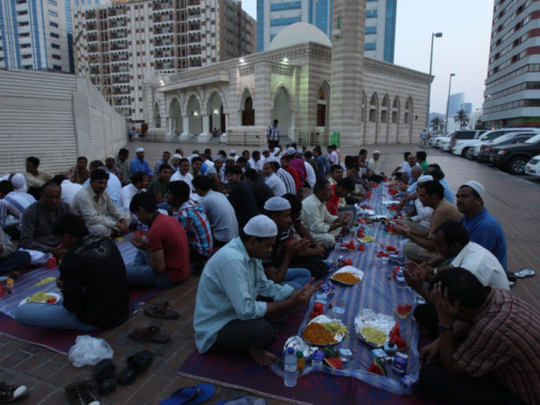
Abu Dhabi: Hosting iftar parties for relatives and friends catches on after the second week of Ramadan and the Abu Dhabi Food Control Authority (ADFCA) is making every effort to increase public awareness about simple precautions that can keep a lid on sour experiences.
“So we would like to advise residents to follow certain simple steps to keep food hazards at bay during the rest of Ramadan,” a senior official at ADFCA told Gulf News.
Mohammad Jalal Al Reyaysa, director of communication and community affairs at ADFCA, said the first ten days of Ramadan passed off without any reports of food-related complaints. “We have not heard news of any major food-related mishaps anywhere in the emirate of Abu Dhabi. I pray the rest of the month also passes off without any bad news,” he said.
Being aware of food safety measures can preempt health hazards during Ramadan, he said, proceeding to highlight a few tips just about everyone can stick to.
- Make sure the primary materials for cooking (vegetables, fruits and meat) are fresh and not rotten.
- Defreeze foods either in a microwave using the defreeze option, or in the fridge — keeping them in a deep container in the bottom shelf to avoid polluting other food items.
- If you defreeze foodstuff using a microwave, make sure you cook it right away because this process may lead to partial cooking and cause microbial growth if left without properly cooking it for a while after defreezing it.
- Frying large amount of foods at once in the same oil will lead to a decrease in the heat of the oil and excessive absorption of oil into the food.
- Use separate spoons while putting foods in serving dishes and while serving it on the table in order to avoid contaminating the entire food. Take enough care to transfer food from big containers into the dishes one after the other so that the food is not contaminated. Keep the big vessels back in the fridge right away.
- Do not use plastic packs and dishes for heating food items in the microwave unless it is indicated for microwave use. Please also note that they are meant for single use. It is preferable to use earthen or glass dishes.
- Use special containers with tightly closed lids or paper covers while storing food in the fridge, while taking care not to store acidic foods in plastic containers.
- Store leftover cooked food in the upper shelf of the fridge to avoid cross-contamination from fresh or uncooked foods.
- Do not store warm food directly in the fridge since that will lead to a rise in temperature inside the fridge and damage perishable food items stored inside. It will also mess up the cooling system. Therefore you must let the food cool off before storing it. You must store such food in large shallow containers.
- Do not fill the fridge with food and leftovers and always leave enough space for the flow of cool air and effective refrigeration so the food doesn’t rot.
- Clean the fridge every week and, in case it gets contaminated, get rid of all the leftover cooked food stored for more than three days in order to keep the rest of the food items safe.
- Change the cleaning sponge and towel in the kitchen continuously as they may provide breeding environs for disease-causing microbes.












